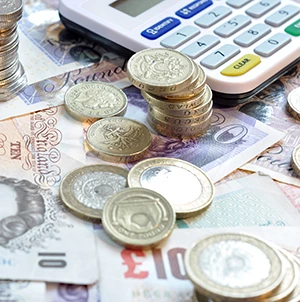Kwasi Kwarteng, the Chancellor of the Exchequer delivered his “mini-budget” on Friday 23rd September 2022 against the back drop of the spiralling cost of living and a struggling economy. Chaos in the financial markets and political arena followed and on 17 October 2022, the new Chancellor, Jeremy Hunt, reversed most of what had been announced.
IR35
Unexpectedly the Government had announced that the 2017 and 2021 reforms to the off payroll working rules (also known as IR35) would be repealed from 6 April 2023. This is no longer happening and the determination of IR35 remains the responsibility of the end client where the end client is medium or large in size.
National Insurance
The introduction of the Health & Social Care levy from April 2023 remains scrapped. This also means that the 1.25% percentage point increase in National Insurance which took effect from April 2022 is also being reversed, from November 2022. This change is good news for individuals, but payroll software companies will now have to work quickly to make changes.
The government has already increased the National Insurance contributions (NICs) Primary Threshold and Lower Profits Limit (from July 2022 onwards), to align the point at which employees start to pay NICs with income tax, at £12,570 and these are not changing following today’s statement.
Self employed people will also benefit as Class 4 NI contributions are also being reduced by 1.25% points from April 2023.
Personal Tax
A reduction in the basic rate of Income Tax from 20% to 19% had been planned for April 2024 and then it was bought forward to 2023. As of today, the reduction has been put on hold indefinitely and the basic rate of Personal Tax remains 20%.
When the National Insurance rates were increased, back in July 2022, the tax rates on Dividends were also increased by 1.25%. Despite the scrapped NI rate increases the dividend rate increase will remain, which is not good news for small businesses and contractors. The first £2,000 of dividend income will remain tax free. Dividends earned in the basic rate will pay tax at 8.75% and higher rate tax payers will pay at 33.75%.
Corporation Tax
The previously announced plans to increase the rate of Corporation Tax to 25% from April 2023 where profits where in excess of £250,000 have been confirmed. For companies with profits between £50,000 and £250,000 this will mean a marginal rate of Corporation tax of 26.5%
Further support will be given to UK businesses by making the temporary £1 million level of Annual Investment Allowance permanent, instead of it reducing back to £200,000 after March 2023.
Stamp Duty
For anyone purchasing a new home, the Government from today have increased the threshold above which Stamp Duty is paid from £125,000 to £250,000. The rate at which first time buyers start to pay Stamp Duty will also increase from £300,000 to £425,000 with immediate effect. The maximum value of a property on which a first-time buyer can claim relief rises from £500,000 to £625,000.
Other measures
Aside from these tax cuts the Chancellor also announced the abolition of duty on beer, wine and spirits along with the much-publicised support for rising energy costs. To provide immediate support for households, an Energy Price Guarantee (EPG) will cap the unit price that consumers pay for electricity and gas.
This will mean the average household will pay no more than £2,500 per year for a period of two years from October 2022, and is expected to save at least £1,000 a year, although savings for individual households will vary according to their energy use. The government will deliver £150 of the saving by covering the environmental and social costs, including green levies, currently included in domestic energy bills for two years. This will be in addition to the £400 support all households will receive from the Energy Bills Support Scheme (EBSS) over the coming winter.
Businesses will receive support for energy costs via the Energy Bill Relief Scheme (EBRS) which is a temporary six-month scheme that will protect businesses and other nondomestic energy users, including charities and public sector organisations, from rising energy bills this winter by providing a discount on wholesale gas and electricity prices.
